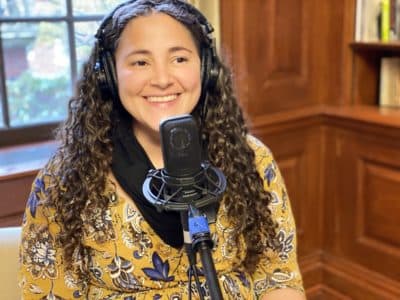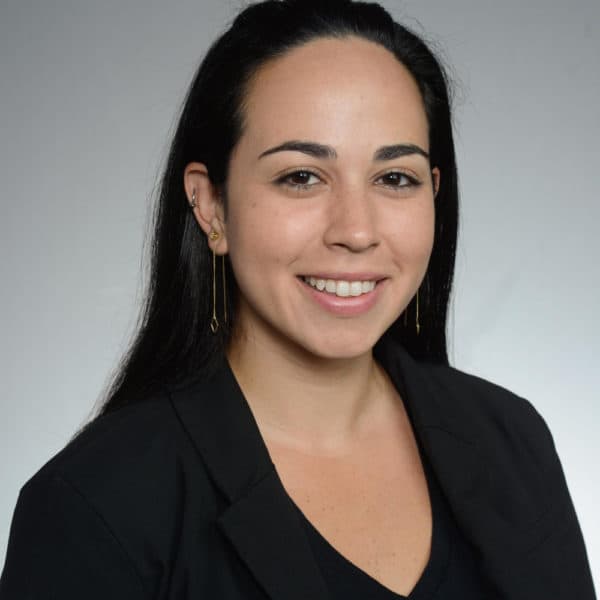Advertisement
Happiness Expert Laurie Santos Helps Us Find Peace During A Pandemic
ResumeAre you panic-scrolling through your social media feeds every night? Laurie Santos, professor of psychology at Yale University and host of the podcast, The Happiness Lab, can relate.

"The thing is, even though I'm the professor who teaches this stuff or the host of this podcast, I'm human, which means I have all these incorrect intuitions, too," Laurie said.
Laurie said her own feelings during the pandemic, plus her expertise on how to increase happiness and well-being in our lives, led her and her team to create a special mini-series of her podcast aimed toward helping listeners cope with COVID-19. What makes her approach different than a typical wellness podcast is that her show — an extension of her wildly popular class, "The Science of Well-Being" — is strictly informed by science.
"This isn't just 'platitudy' stuff that I made up," Laurie said. "Here's the study. Here's the graph. Here's the randomized control trial. We really want people to realize that this stuff that we're saying is evidence-based."
We spoke with Laurie Santos to learn more about her class, her podcast, the practices she champions and uses herself, and the methods she recommends for helping us all as we live through unprecedented times.
Interview Highlights
On a recurring theme of her class and podcast:
Laurie Santos: "What you find is that you can be incredibly miserable and incredibly privileged and rich and you can also be super, super happy in the most awful of objective of circumstances. I think that is really an important theme that we need to come to terms with if we want to improve our well-being, because often we're putting effort into fixing things; we're just kind of going about it the wrong way. We're sort of doubling down on things that aren't ultimately going to matter for whether we improve our well-being."
On the state of mental health in the United States:
LS: "I think part of this mental health crisis is we're prioritizing the wrong stuff. We're focusing on work and grades and these things at the opportunity cost of things like social connection. We're really obsessed with treating ourselves and self-care at the expense of being other-oriented enough to care about other people. We're really not allowing ourselves to be present, because whenever we feel anxious, we have these easy distractions of phones and things like that. And so I think we're kind of systematically engaging in behaviors that are the least likely to promote our mental health."
On a mindset she has adopted to help her during the coronavirus pandemic:
LS: The "stoic challenge" approach to dealing with a crisis is to really think of how you want to view this crisis afterwards. You want to get through this crisis with flying colors and be proud and be able to tell your grandkids, “Yeah, I survived the Coronavirus 2020, but I was awesome, and I really thrived and I helped people." It's a framework that's really helped me take things that would normally be scary and awful and to give me a positive emotional framework, but also a framework that requires my action. I can take agency in the context of this crisis, and I think, right now, that feels really powerful, too.
On techniques she recommends for others living through the pandemic:
LS: "Remember the power of post-traumatic growth: Things that might feel awful right now are actually going to make you stronger in the long run. They're going to allow you to have more meaning in your life, the data suggest. They're going to allow you to form stronger social relationships. They're going to make you happier in an odd way and stronger on the other side. And you might not be able to see it yet, but having hope that that is the case, because the science suggests it's really the case, can be very powerful."
